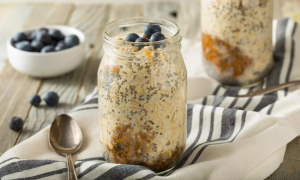The number of calories you need to eat each day depends on a number of factors, including your age, sex, height, weight, and activity level. In general, men need more calories than women, and people who are more active need more calories than people who are less active.
Age is another important factor to consider when determining your daily calorie needs. As you get older, your metabolism slows down, so you need fewer calories to maintain your weight.

How Many Calories Do I Need Per Day?
The following table shows the recommended daily calorie intake for people of different ages, based on a moderate activity level:
| Age | Female | Male |
| 19-30 | 1,800-2,400 | 2,400-3,000 |
| 31-59 | 1,600-2,200 | 2,200-2,800 |
| 60+ | 1,600-2,000 | 2,000-2,600 |
It is important to note that these are just general guidelines. Your individual calorie needs may vary depending on your specific circumstances. If you are trying to lose weight, gain weight, or maintain your weight, you may need to adjust your calorie intake accordingly.
Here are some tips for determining your individual calorie needs:
- Talk to your doctor or a registered dietitian. They can help you calculate your calorie needs based on your individual factors.
- Use a calorie calculator. There are many online calorie calculators that can help you estimate your calorie needs.
- Track your food intake. Keeping a food journal can help you track how many calories you are eating each day.
- Pay attention to your hunger and fullness cues. Eat when you are hungry and stop eating when you are full.
If you are unsure how many calories you should be eating each day, it is best to talk to your doctor or a registered dietitian. They can help you create a healthy eating plan that meets your individual needs.
Factors That Affect Calorie Needs:
The number of calories you need per day is determined by a number of factors, including:
- Basal metabolic rate (BMR): This is the number of calories your body needs at rest to maintain its basic functions, such as breathing, heart rate, and brain activity. BMR is influenced by a number of factors, including your age, sex, height, weight, and body composition.
- Activity level: The more active you are, the more calories you burn. Activity level can be divided into three categories: sedentary, moderately active, and very active.
- Age: As you age, your BMR typically decreases, which means you need to consume fewer calories to maintain the same weight.
- Sex: Men generally have a higher BMR than women because they have a higher percentage of muscle mass. Muscle tissue burns more calories than fat tissue.
- Body size: Larger people generally need more calories than smaller people because they have more body mass to maintain.
- Pregnancy and lactation: Pregnant and lactating women need to consume more calories than non-pregnant and non-lactating women to support their growing babies and milk production.
- Certain medical conditions: Some medical conditions, such as hyperthyroidism and cancer, can also affect calorie needs.
Other factors that may affect calorie needs include:
- Genetics: Some people are simply more predisposed to gaining weight than others, even if they have the same diet and activity level.
- Climate: People who live in colder climates may need to consume more calories than people who live in warmer climates to maintain their body temperature.
- Stress: Chronic stress can lead to increased cortisol levels, which can promote weight gain.
- Sleep: People who don’t get enough sleep are more likely to gain weight, possibly because they are more likely to snack on unhealthy foods and have less energy to exercise.
It is important to note that calorie needs are individual and can vary from day to day. The best way to determine your calorie needs is to talk to a registered dietitian or other qualified healthcare professional.
Daily Calorie Needs By Age Table
The following table shows the estimated daily calorie needs for people of different ages and activity levels:
| Age (years) | Sex | Sedentary | Moderately Active | Active | Very Active |
| 2-3 | Both | 1,000-1,400 | 1,200-1,600 | 1,400-1,800 | 1,600-2,000 |
| 4-8 | Female | 1,400-1,600 | 1,600-2,000 | 1,800-2,200 | 2,000-2,400 |
| 4-8 | Male | 1,400-1,600 | 1,600-2,000 | 1,800-2,200 | 2,000-2,400 |
| 9-13 | Female | 1,600-2,000 | 1,800-2,200 | 2,000-2,400 | 2,200-2,600 |
| 9-13 | Male | 1,800-2,200 | 2,000-2,400 | 2,200-2,600 | 2,400-2,800 |
| 14-18 | Female | 2,000-2,200 | 2,200-2,400 | 2,400-2,800 | 2,600-3,000 |
| 14-18 | Male | 2,400-2,800 | 2,600-3,000 | 2,800-3,200 | 3,000-3,400 |
| 19-30 | Female | 2,000-2,200 | 2,200-2,400 | 2,400-2,800 | 2,600-3,000 |
| 19-30 | Male | 2,400-2,800 | 2,600-3,000 | 2,800-3,200 | 3,000-3,400 |
| 31-50 | Female | 2,000 | 2,200-2,400 | 2,400-2,800 | 2,600-3,000 |
| 31-50 | Male | 2,400 | 2,600-3,000 | 2,800-3,200 | 3,000-3,400 |
| 51+ | Female | 1,800 | 2,000-2,200 | 2,200-2,400 | 2,400-2,600 |
| 51+ | Male | 2,200 | 2,400-2,600 | 2,600-2,800 | 2,800-3,000 |
Please note that these are just general estimates. Your actual calorie needs may vary depending on your individual metabolism, activity level, and other factors. If you are unsure how many calories you need, talk to your doctor or a registered dietitian.
How To Calculate Your Calorie Needs
To calculate your calorie needs, you can use the following steps:
- Calculate your basal metabolic rate (BMR). This is the number of calories your body needs to function at rest. There are a number of online calculators that can help you calculate your BMR based on your age, sex, weight, and height.
- Multiply your BMR by your activity level. This will give you your total daily energy expenditure (TDEE). Your activity level is a measure of how much physical activity you do on a daily basis. If you are sedentary, you should multiply your BMR by 1.2. If you are lightly active, you should multiply your BMR by 1.375. If you are moderately active, you should multiply your BMR by 1.55. If you are very active, you should multiply your BMR by 1.725. If you are extremely active, you should multiply your BMR by 1.9.
Example:
- A 30-year-old male who weighs 170 pounds and is moderately active has a BMR of 1900 calories per day.
- His TDEE is 1900 calories per day * 1.55 = 2945 calories per day.
- This means that he needs to consume 2945 calories per day to maintain his current weight.
If you are trying to lose weight, you need to create a calorie deficit by eating fewer calories than you burn each day. A general rule of thumb is to reduce your calorie intake by 500 calories per day to lose 1 pound per week.
However, it is important to note that everyone’s calorie needs are different and can vary depending on a number of factors, such as body composition, muscle mass, and health conditions. If you are unsure about your calorie needs, it is best to talk to a registered dietitian or other qualified healthcare professional.
Tips For Eating A Healthy Diet
Here are some tips for eating a healthy diet:
- Eat a variety of foods. This will help ensure that you are getting the nutrients your body needs. Choose from all food groups, including fruits, vegetables, whole grains, lean protein, and low-fat dairy.
- Make half your plate fruits and vegetables. Fruits and vegetables are low in calories and high in nutrients, so they should be a staple of your diet. Aim to eat at least five servings of fruits and vegetables each day.
- Choose whole grains over refined grains. Whole grains are a good source of fiber, which can help you feel full and satisfied after eating. They also contain vitamins, minerals, and antioxidants. Refined grains have been stripped of many of their nutrients, so they are not as healthy.
- Choose lean protein sources. Lean protein sources are low in saturated fat and calories. Good examples include chicken, fish, beans, tofu, and nuts.
- Limit saturated and unhealthy fats. Saturated and unhealthy fats can raise your cholesterol levels and increase your risk of heart disease. Limit your intake of saturated fats from foods such as butter, cheese, and red meat. Avoid unhealthy fats, such as trans fats and hydrogenated oils.
- Limit sugar and sugary drinks. Sugar is high in calories and can contribute to weight gain and other health problems. Limit your intake of sugary drinks, such as soda, juice, and sports drinks. Also limit sugary foods, such as candy, cookies, and cake.
- Drink plenty of water. Water is essential for good health. Aim to drink eight glasses of water each day.
Here are some additional tips for making healthy eating easier:
- Plan your meals ahead of time. This will help you make sure you have healthy foods on hand when you are hungry.
- Cook more meals at home. This gives you more control over the ingredients in your food.
- Make healthy substitutions. For example, instead of frying food, try baking or grilling it. Instead of using full-fat dairy products, try low-fat or fat-free versions.
- Don’t be afraid to indulge occasionally. It’s okay to enjoy your favorite unhealthy foods from time to time. Just make sure they are a small part of your overall diet.
Eating healthy doesn’t have to be complicated or expensive. By following these tips, you can make healthy eating a part of your lifestyle.






